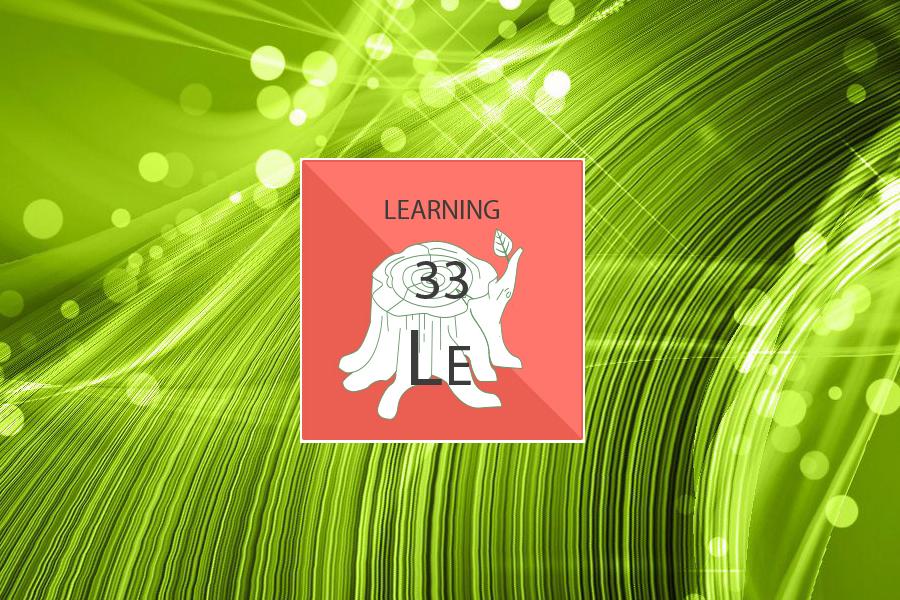 Learning – I learn effectively
Learning – I learn effectively
From a young age, we have a passion for learning new things, new tricks, new words, new skills. Our minds are networks of learning systems, categorising, prioritising and organising the reality we know.
Introduction
From a young age, we have a passion for learning new things, new tricks, new words, new skills. Our minds are networks of learning systems, categorising, prioritising, storing, forming and re-structuring information as we go. No longer can we rely only on what we learnt a few years ago. We also need to rely on what we are learning each and every day. How we manage our lifelong learning determines how our lives will unfold. We can overcome many barriers to achieving our dreams and goals through lifelong learning . It is said that real education is what remains once what you have learnt has been forgotten. Once you have learnt the skill of riding a bicycle, the chances are that you will be able to ride a bike even when the specific lessons have faded from your memory.
Benefits of learning effectively
1. New opportunities come alive and we can advance.
2. When we focus on our learning, we can learn more.
3. Keeps us updated on new information and changes.
4. Helps you to reach your dreams and goals.
5. Helps you to protect the future of others.
Skill example
I decided one day to find out about new ways to learn, like brainstorming with others. I realised that the more I learnt about my dreams and goals, the better chance I had at achieving them. I also learnt how to link my dreams and goals to the needs of my community.
Angel’s story
Angel had a passion for poultry farming in Mbangwane. She did not have the finances to begin such an endeavour but still kept thinking about the potential. Angel would spend her internet time on poultry farming from feeding to inoculating, every second she watched was like food to her soul. Angel also took short courses on disease control and on marketing. Furthermore, Angel found a mentor who began to teach her many things she never knew.
Angel saved all the extra money she could to purchase her first chickens, setup the coop and have finances for inoculations and feeding. One day, while working on her poultry farming budget, Angel realised that she was finally able to afford the start-up. She had saved up enough money to purchase some broiler chickens and support their full growth cycle. Long story short, Angel started her small scale poultry farm and continued to manage her business to become a major distributor in her community.
How to grow your learning skills
Learning is a lifelong process, and there are many ways to improve your learning skills. Here are some tips to help you grow your learning skills:
- Set clear learning goals: Identify what you want to learn and why you want to learn it. Set clear, achievable goals that align with your interests and priorities.
- Develop a growth mindset: Embrace challenges as opportunities for growth and learning. See failures as temporary setbacks and look for ways to learn from them.
- Develop good study habits: Set aside dedicated time for learning and studying. Create a conducive learning environment, free of distractions. Take breaks when needed, and stay organised.
- Use multiple learning styles: Everyone has different learning styles, so use a variety of techniques to learn new material. This may include visual aids, hands-on learning, or auditory learning.
- Seek out feedback: Feedback is essential for improving your learning skills. Seek feedback from teachers, peers, or mentors, and use it to improve your skills.
- Practice active learning: Engage actively in the learning process by asking questions, summarising key concepts, and relating new information to what you already know.
- Use technology: Technology can be a valuable tool for learning. Use online resources, educational apps, and other digital tools to supplement your learning.
- Learn from others: Seek out opportunities to learn from others, such as attending workshops, conferences, or networking events.
- Stay curious: Maintain a sense of curiosity and a desire to learn new things. Keep an open mind and seek out new experiences and challenges.
- Review and reflect: Regularly review what you have learned and reflect on your progress. This can help you identify areas for improvement and reinforce what you have already learned.
Remember that learning is a continuous process, and there is always room for improvement. By setting clear learning goals, developing a growth mindset, developing good study habits, using multiple learning styles, seeking out feedback, practicing active learning, using technology, learning from others, staying curious, and reviewing and reflecting, you can grow your learning skills and achieve your goals.

Learning
I learn effectively
From a young age we have the passion to learn new skills, new tricks, new words, new ways to do old things. Our minds are networks of learning systems, categorising, prioritising, storing, forming and re-structuring information as we go.